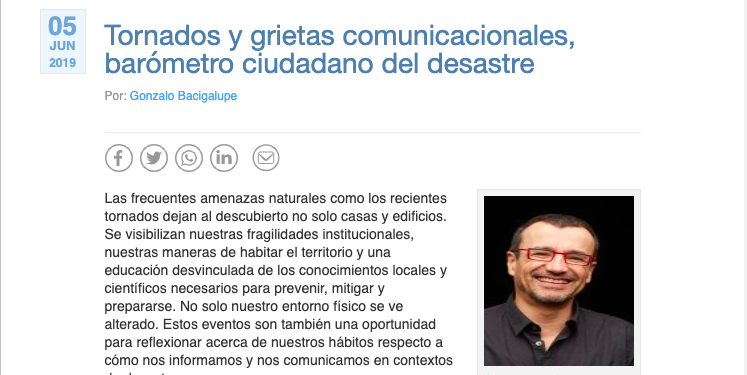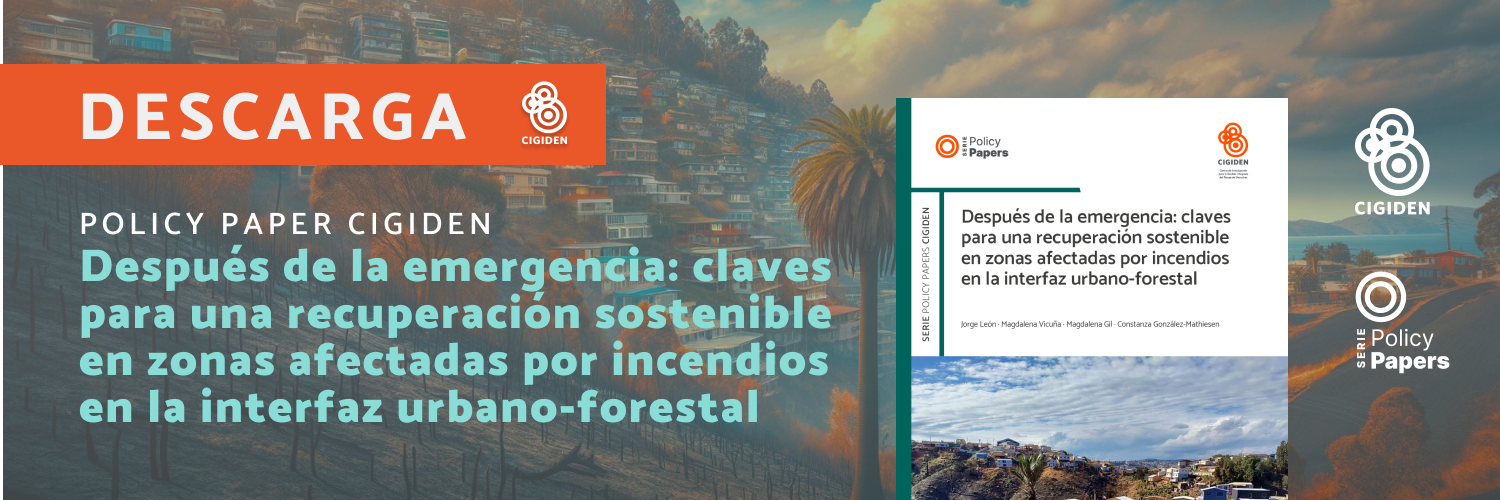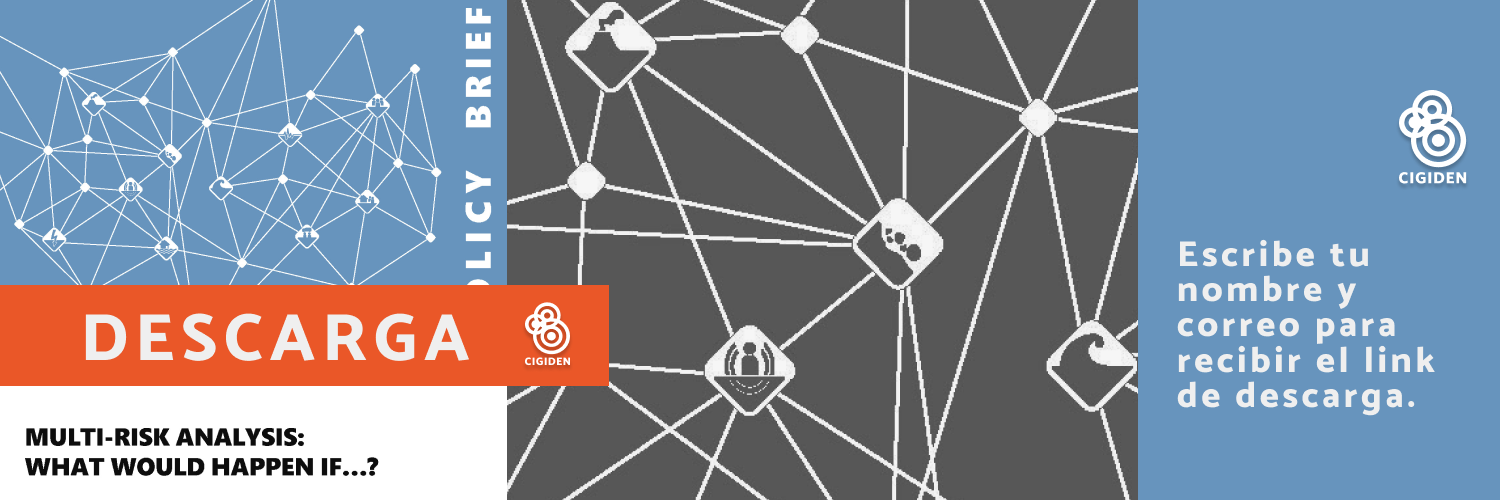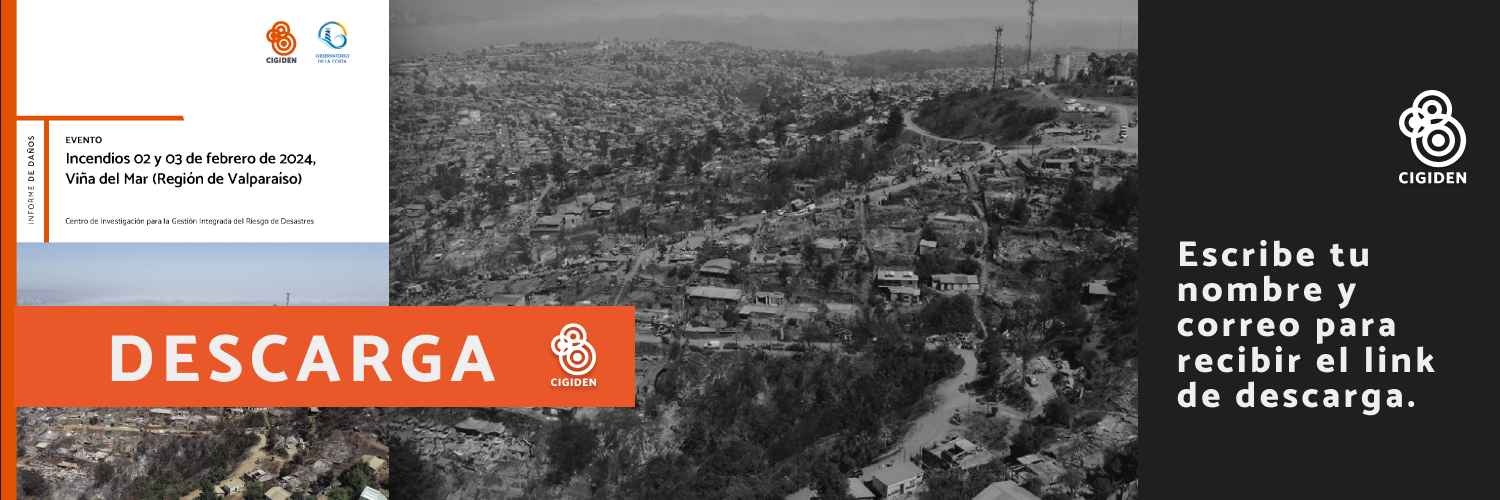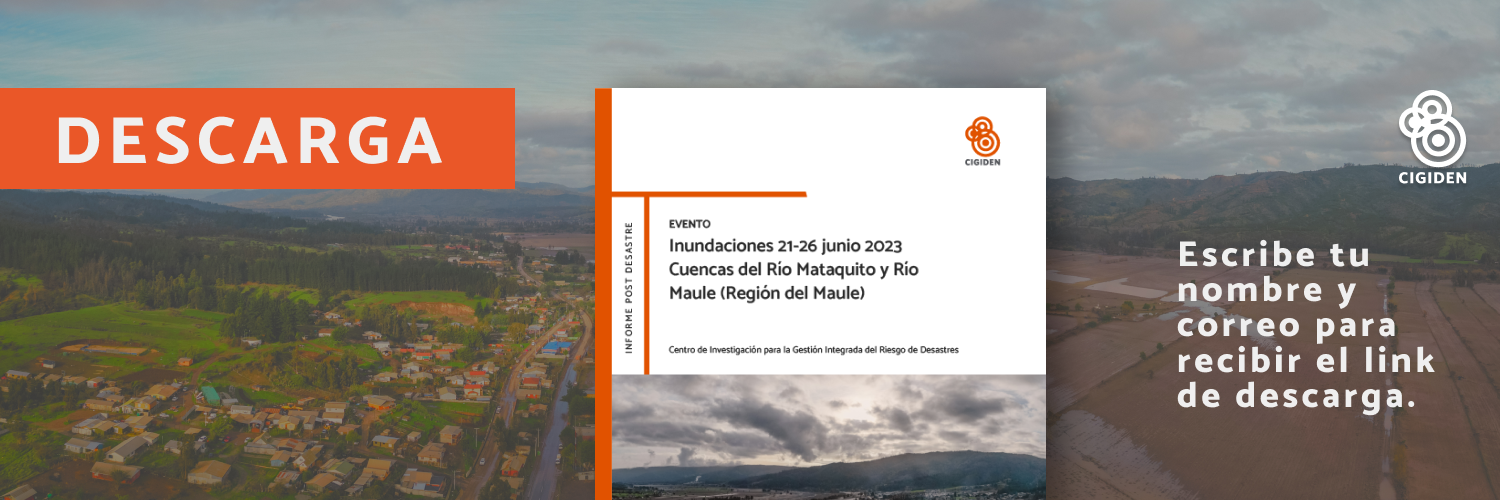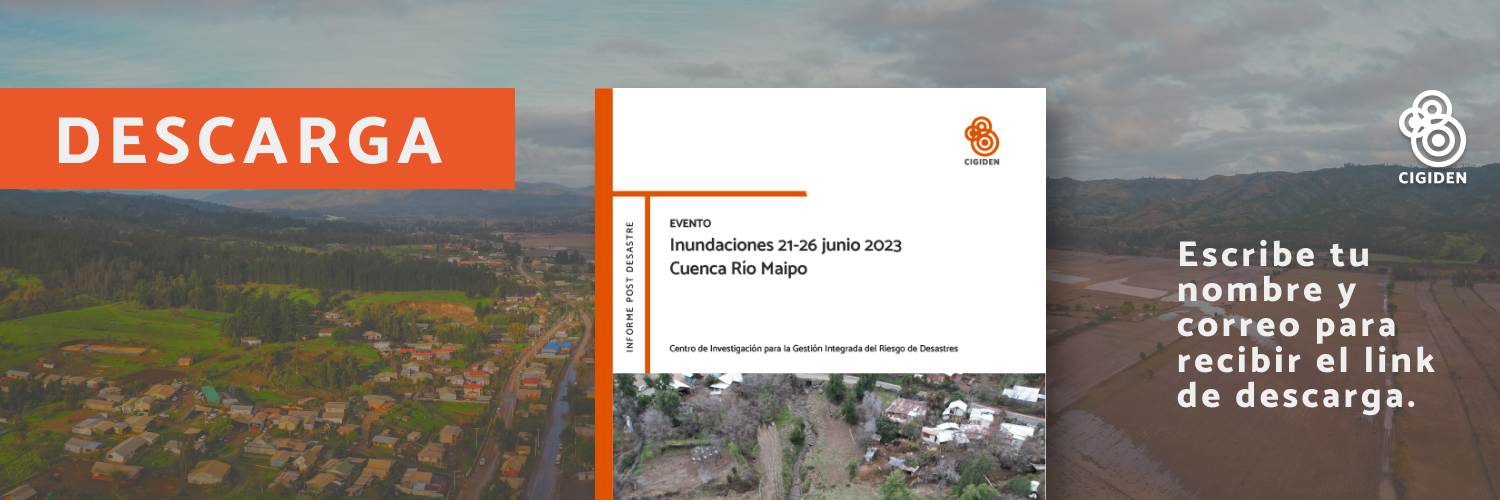By Gonzalo Bacigalupe.
Frequent natural hazards, like the tornadoes that recently struck our country, expose not only houses and buildings. They reveal our institutional fragility, our ways of inhabiting the territory and an education that does not engage with the local and scientific knowledge required to prevent, mitigate and be prepared. Not only is our physical environment altered. These events are also a chance to reflect upon our habits concerning the way we get information and communicate during a disaster.
Infrastructure gaps are as important or more important than changes in the way citizens communicate with others and use the information before, during and after an event in which nature seems to reveal itself in our ways of inhabiting it.
In order to design a citizen barometer for disaster, CIGIDEN’s team of researchers explored the way we communicate, citizen perception of risk, hazards and the information they receive and create through both traditional and digital means of communication.
Perhaps the most essential aspect is the key role that private media, such as WhatsApp, play when defining contents related to disasters, natural hazards, their relationship with climate change, among others. The consumption of media such as YouTube and Instagram is also important, especially among the youth.
Television, radio and digital media are still relevant, especially during and after these events. The interpretation thereof, our trust in them and the flow of said information take place through social networks and technologies such as WhatsApp. Young people and adults use it, almost in the same proportion.
In this survey, we found that most people feel prepared to face earthquakes, tsunamis and alluviums, but this seems to be a contradiction.
Although Chileans connected to the networks and the Internet are demanding more and better information about these phenomena, the country does not seem to be prepared for the frequency or intensity of the events that strike us and entail potential hazards.
The survey once again showed that these events are a source of anxiety, stress and sleep disorders. As our mental health researchers suggest, educating ourselves about psychological first aid is key.
A strategy systematized in a manual that can be prepared by all those in contact with affected people, to regain calmness, trust and hope.
Today, the disruption of nature is still deemed as an emergency; despite the scientific consensus, disasters are still referred to as “natural”. Alluviums, tornadoes, fires, earthquakes and tsunamis bring down not only houses and roads, they also reveal the fragility of our relationship with the environment.
We should be better prepared and educated, and we should aim at a more effective mitigation of the undesired impacts of nature in the territories we inhabit.
We still lack local and regional governance to handle emergencies, including a solid coordination between public and private institutions.
We are well aware of this. Nonetheless, this inconvenient truth is currently paralyzing state and congressional leadership. Although they are still coping with emergencies, there is little time to stand in solidarity with the victims of the disasters, and there are no serious risk mitigation strategies for the entire population.
We need much more prevention and education, and also sophisticated strategies to face emergencies.
Through the social networks, people seem to be aware of this shortcoming. There is an increased interest in learning how climate change intensifies, strengthens and/or increases the frequency of these natural events.
According to the citizen barometer we developed, there is a clear interest for scientific and technological issues, and climate change.
In parallel, different generations are using technologies to communicate (WhatsApp is a prime example) and get information. These same technologies offer huge potential to disaster managers, not only to communicate during emergencies, but also to educate people and build a culture of resilience.
Click here to read the piece published in Cooperativa


